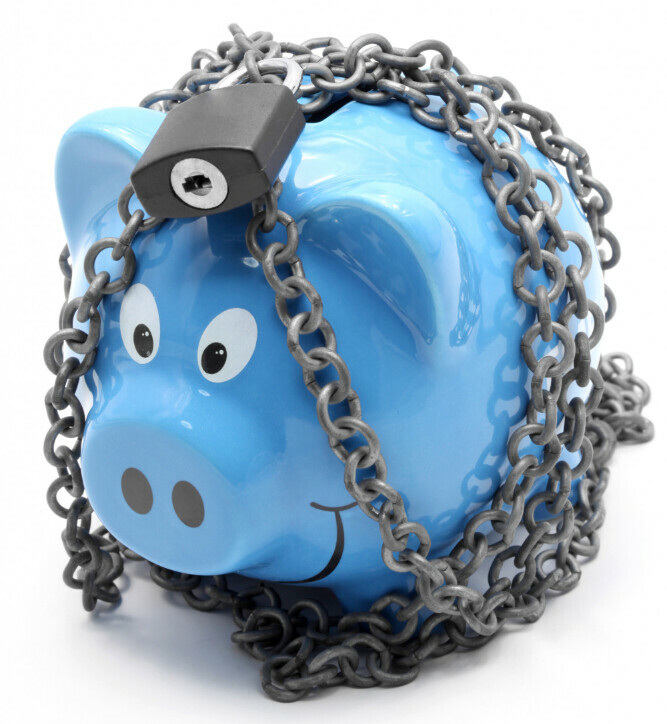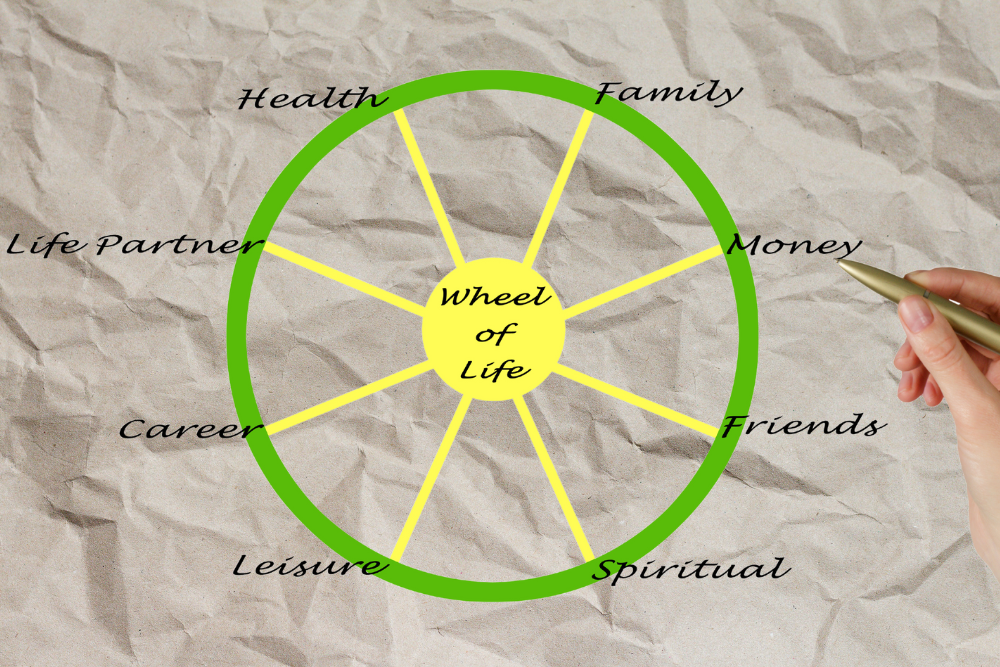Healing Our Relationship With Money
Money is like a mirror, reflecting our hopes, fears, and untold stories. It’s more than just a tool for trade; it’s intertwined with our emotions and touches every facet of our lives. In this regard, money management isn’t only about budget sheets and investment strategies; it’s equally about navigating the intricacies of our psyche, the sometimes tangled web of emotions and thoughts that money can stir within us. The untangling of that web, the unlocking of the chains of the ideas we have about money lead to healing our relationship with money.

Culture and family often play vital roles in shaping our financial attitudes. From the value of thriftiness passed down by grandparents to the subtle pressures of ‘keeping up with the Joneses’, our environment can dictate much of our financial lives, sometimes without our conscious awareness. Recognizing these influences is the first step in understanding why we approach money the way we do.
It’s common to experience financial fears, but I’ve learned it’s less about the fear and more about how we address it. Do we cower or confront? Hesitate or take controlled steps forward? Overcoming these fears doesn’t happen overnight. It’s a process, a series of conscious decisions to engage with money positively and proactively rather than allowing it to be a source of stress.
The Roots of Financial Anxiety: Identifying the Source
To effectively heal our relationship with money, we must first pinpoint the source of our financial anxiety. Much like therapists probe into our pasts to understand current behaviours, we must dig into our financial histories to uncover the foundations of our monetary mindset.
Think about your earliest encounters with money. Did your family frequently discuss finances, or was the topic shrouded in secrecy? These initial experiences become the framework for our spending, saving, and earning structures. We often carry the weight of our parents’ attitudes toward money, whether that’s frugality born of scarcity or extravagance that ignores consequences.
Moreover, our society doesn’t make it any easier. There’s an overwhelming pressure to appear financially successful, which can perpetuate cycles of debt and spending beyond our means. Couple that with the fact that many of us were never formally educated on managing finances, and it’s no wonder that so many adults find themselves lost in financial predicaments.
It’s also about the blunders we’ve made along the way. Those moments we strayed beyond our budget or made a less-than-stellar investment linger in our memories. Sometimes, those missteps hold the most sway, making us overly cautious or reckless because we’re determined not to repeat history—or, paradoxically, are bound to it.

As we move to the next section, keep these thoughts in mind. I will guide you through adopting principles that address the practical side of money management and help you foster a deeper understanding of your monetary philosophy.
Principles of Mindful Money Management
Money management isn’t just about spreadsheets and numbers; it’s also about mindset. Embracing mindfulness regarding our finances can lead to profound changes in our bank accounts and lives. Here’s how you can infuse mindfulness into managing your money.
Start with financial self-reflection. Set aside time each week to review your finances thoughtfully. How does spending this week reflect my values and long-term goals?
When it comes to allocating your resources, consistency is vital. Regularly reassess your expenditures. Are they aligning with what you most value? Direct your money where it matters most.
Understanding that your net worth does not define your self-worth is crucial. Be wary of comparing your financial journey to others’. Focus on your path and celebrate your milestones, however small they seem.
Remember, managing money mindfully isn’t accomplished overnight. It’s an ongoing process of tuning in to your financial habits and making adjustments that resonate with your core values. By staying committed to this approach, you’ll see positive changes not only in your finances but also in your overall well-being.

As we move forward, let’s build on these guiding principles of mindfulness by exploring how to reshape our relationship with money on a deeper level. We’ll delve into strategies for cultivating a positive money mindset that can be a bedrock for lasting financial health.
Techniques for Building a Positive Money Mindset
Our thoughts have immense power over our actions, especially regarding money. To cultivate a positive relationship with your finances, nurturing a positive money mindset is crucial. Imagine your thoughts as the soil where your financial decisions take root; if the soil is healthy, the decisions will likely flourish.
Start by incorporating affirmations and visualization. These are not mere feel-good statements but tools for reprogramming the neural pathways associated with money. Repeat phrases like ‘I can handle my finances wisely’ or ‘I attract financial opportunities’ daily to reinforce positive beliefs. Visualizing yourself managing and growing your wealth can complement these affirmations.
Do not underestimate the power of gratitude, either. Gratitude moves your focus from what you lack to what you possess, breeding contentment and generosity. Keep a gratitude journal specifically for finances. Writing down things like ‘I’m grateful for the job that provides for my expenses’ can dramatically transform your perspective.
The crux of the change, however, lies in cognitive restructuring. Discover the process of identifying and challenging harmful and often inaccurate money beliefs. Replace thoughts like ‘I’ll never be debt-free’ with ‘Every step I take is moving me closer to financial freedom.’ Recognize that financial setbacks aren’t personal failures but opportunities for learning and growth.
With this positive framework, you’ll be better prepared to tackle the practical aspects of money management. And that starts with creating a sustainable and empowering budget that acknowledges your financial reality and respects your emotional well-being.
Creating a Sustainable and Empowering Budget
Often, constructing a budget feels like a chore. But what if I told you it’s more than just numbers and spreadsheets? It’s a pivotal step towards financial stability and emotional well-being. A sustainable budget isn’t about restricting yourself; it’s about empowerment and making your money work for you.

To start, I advocate weaving self-care into your financial plans. Yes, that’s right. Permitting yourself to allocate funds for things that nourish your soul is not frivolous; it’s essential. You could ensure you have a small weekly amount for a favourite hobby or activity that boosts your mood.
Moreover, it’s crucial to establish financial targets that aren’t just about the long haul. Set goals you can reach in the near term. Why? Because achieving these can provide boosts of confidence and a sense of accomplishment, keeping you motivated.
Now, remember that rigidity can be the downfall of any good plan. Your budget must be flexible to withstand life’s inevitable changes. Adjusting your spending is okay; the key is to do it without feeling guilty or defeated. This resilience can help you move smoothly into developing strategies for managing financial obligations like debt.
Strategies for Debt Management and Recovery
If you’re grappling with debt, you’re not alone. I want to discuss strategies to manage and recover from debt without judgment or jargon. A common hurdle many face is seeing debt as a personal failure, but I urge you to see it as simply a challenge to overcome.
Understanding your debts is the first step. Write down what you owe, to whom, and the interest rates. Knowledge is power, and power can ignite action. From here, you can start forming your simple debt reduction plan.
Consider using the snowball method when you tackle small debts first and make minimum payments on the larger ones. It’s like a snowball rolling downhill, growing in success and confidence. Or, there’s the avalanche method, which first remedies the highest interest debts, saving money over time. Choose the process that makes sense for you psychologically and financially.
Making a budget is the best strategy. Allocate funds to your debts consistently, and when possible, make more than the minimum payments to reduce your interest obligations over time.
Remember, setbacks happen. A month where you can’t pay extra on a loan isn’t a failure; it’s a part of life. Adjust, don’t give up. Pat yourself on the back for the small victories. Financial freedom becomes that much closer with each payment.
In the next section, I’ll transition to the big picture – maintaining your financial health long-term. It’s not just about getting out of debt; it’s about staying out, building resilience, and progressing toward prosperity.
Fostering Long-Term Financial Wellness and Prosperity
I’ve taken you through the twists and turns of reshaping our financial lives, and now it’s time to look ahead. Financial wellness isn’t a sprint; it’s a marathon spanning life’s landscape. Consistency is your ally here. Embrace learning as a lifelong quest. There are always new financial concepts to grasp, market trends to understand, and personal budgeting strategies to master.
One essential step to sustain financial health is to establish an emergency fund. It’s an economic lifeline, ready to catch you if life throws you a curve ball. Start small, save consistently, and watch your fund grow. Remember, the peace of mind an emergency fund brings can significantly reduce your money-related stress.

And don’t overlook the strength found in numbers. Being part of a community that shares financial wisdom and support can lift you during tough times and celebrate with you during the good. Connect with others in an online forum, a local workshop, or a group of friends committed to better financial habits. Shared experiences are powerful; they turn the solitary path of money management into a journey of collective growth.
Above all, remind yourself that your financial journey is unique. Personal prosperity isn’t about mirroring someone else’s success. It’s about writing your story, where each chapter brims with experience and knowledge. So stay curious, stay patient, and keep charting your course toward a future where healing our relationship with money heals our life and allows us to thrive.
Resources:
What are Dave Ramsey’s baby steps to financial stability? | Gallant Financial Planning.
https://www.gallantfp.com/blog/what-are-dave-ramseys-baby-steps-to-financial-stability
HenryGuru.com.
https://www.henryguru.com/en/how-to-tackle-debt-and-achieve-financial-freedom/
Entrepreneurs Pilot.
https://www.entrepreneurspilot.com/how-to-get-out-of-debt-when-you-are-broke/





 Threading these personal benchmarks into the fabric of daily actions can lead to profound changes not just within but in how life shapes around you. Adhering to an inner scorecard encourages decisions that align with your true self, ultimately touching every aspect of your life, including work, relationships, and community.
Threading these personal benchmarks into the fabric of daily actions can lead to profound changes not just within but in how life shapes around you. Adhering to an inner scorecard encourages decisions that align with your true self, ultimately touching every aspect of your life, including work, relationships, and community.







